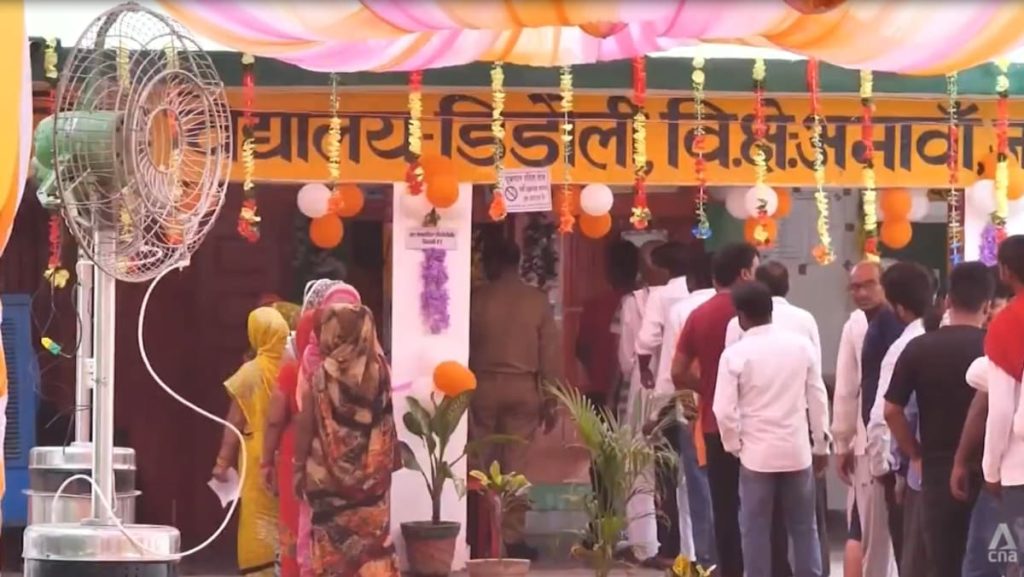In New Delhi, Madam Nisha Janotri and her husband are forced to work in the searing heat to support their family. They run a clothes ironing stand in South Delhi, without electricity or a fan, making the already intense heat even more unbearable. The heat from the charcoal iron they use adds to the discomfort, with Madam Nisha often feeling weak and lightheaded due to the extreme temperatures. Despite the challenges, they continue to pick up clothes from different homes, iron them, and deliver them back, facing difficulties in the scorching heat.
As temperatures soar beyond 45 degrees Celsius across India during the ongoing general election, New Delhi has experienced highs of 47.4 degrees Celsius. The capital has been placed on the highest level of alert for severe heatwaves, highlighting the dangerous conditions faced by residents and workers like Madam Nisha and her husband. Tragically, at least nine people have died in the western state of Rajasthan as a result of suspected heat stroke, underscoring the deadly consequences of the extreme weather conditions.
With India’s summer temperatures typically peaking in May, scientists have predicted more heatwave days than usual this year, attributing this to factors such as fewer non-monsoon thundershowers and the weakening El Nino weather phenomenon. The impact of climate change on India’s weather patterns is becoming increasingly evident, with heatwaves and other extreme weather events posing significant challenges for the population. The lack of preparation for the hot weather by India’s poll body has been linked to lower voter turnout during the general election, raising concerns about the impact of extreme temperatures on democratic processes.
Climate experts have also criticized political parties for neglecting to address India’s climate crisis in their manifestos, highlighting the need for greater awareness and action on environmental issues. As the country grapples with rising temperatures and more frequent heatwaves, it is crucial for policymakers to prioritize climate adaptation and mitigation strategies to protect vulnerable communities and mitigate the impact of extreme weather events. In the face of mounting challenges posed by climate change, urgent action is needed to address the root causes of global warming and ensure a sustainable future for all.


